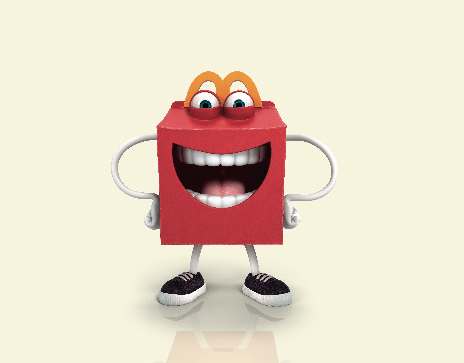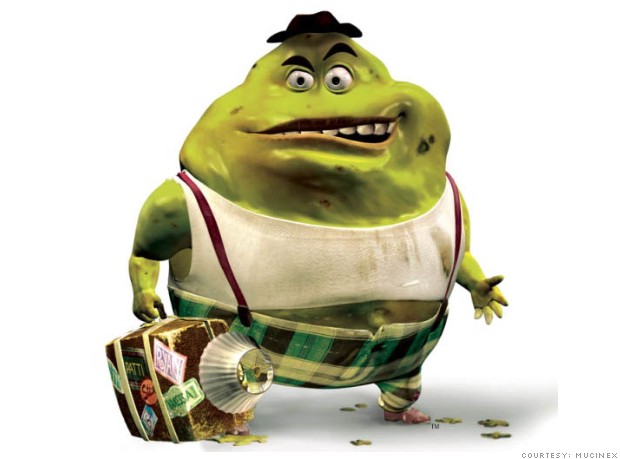

This post is in partnership with Fortune, which offers the latest business and finance news. Read the article below originally published at Fortune.com.
McDonald’s new mascot, Happy (right), has been called “terrifying.” And so it is, at least to some observers, what with its oversized, human-looking teeth; its crazed, bulging eyes; and its freakishly attenuated arms. But it’s disturbing on another level, too: it was clearly the work of a focus-group-driven corporate bureaucracy trying to satisfy a lot of internal constituencies, as opposed being the original work of a creative team. Obviously inspired in part by Spongebob Squarepants, it’s easy to imagine that Happy was tested and retested, subjected to the scrutiny of a battery of consultants, and tweaked and retweaked until nobody was offended. That was until it was unleashed on the public — at which point nearly everybody was offended. But as horrifying as Happy might be, he’s got lots of company. See who else makes consumers squirm.

The Jolly Green Giant was such a popular character that the company he represented, the Minnesota Valley Canning Co., took his name in 1950. But in his earliest iterations in the ’20s and ’30s, the Green Giant didn’t always seem so jolly. In fact, it was the future ad wizard Leo Burnett who in 1935 added the “Jolly” to the Green Giant’s name and who took the first steps toward making him less terrifying in print ads, in part by replacing his scowl with a smile. In the character’s first TV spots in the ’50s, though, the giant was scarier than ever. Finally the by-then-thriving Burnett agency discovered that by downplaying the his presence, he was not only far less frightening, but also far more effective.

We all complain about TMI ads that spend 30 seconds focused on some distasteful body function or embarrassing malady. But hey, products for gross stuff deserve marketing too. Enter Mr. Mucus, which can most accurately be described as an anthropomorphized glob of snot. He is the villain in a series of spots for Mucinex, the expectorant originally marketed by Adams Respiratory Therapeutics. But Mr. Mucus might soon meet his demise: Reckitt Benckiser, which acquired Adams in 2007, isreviewing its advertising and might end the phlegmy foe’s 10-year run.
More Must-Reads from TIME
- Cybersecurity Experts Are Sounding the Alarm on DOGE
- Meet the 2025 Women of the Year
- The Harsh Truth About Disability Inclusion
- Why Do More Young Adults Have Cancer?
- Colman Domingo Leads With Radical Love
- How to Get Better at Doing Things Alone
- Michelle Zauner Stares Down the Darkness
Contact us at letters@time.com